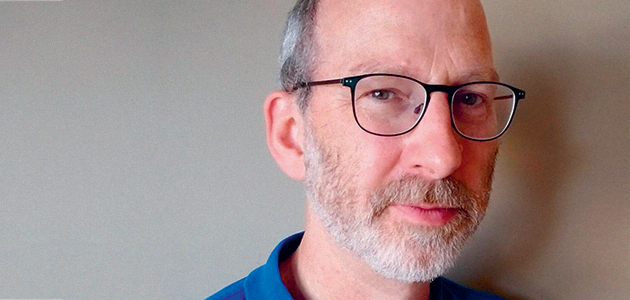The Swarthmore Lecture, 2021: Kinder Ground: Creating space for Truth, by Thomas Penny
‘Historically, Quakers have known what to do in wars… We don’t join the conflict.’

Thomas Penny took the platform at The Light to deliver his challenging and timely lecture. He was supported there by a group of Friends, who he’d invited to uphold him. On YouTube more than 700 live viewers logged on, with more Friends expected to join watching parties in the following week.
Thomas began considering the lecture a year and a half ago, when the UK was ‘convulsed in a period of political confusion over Brexit’. ‘It was a bewildering time’, when ‘truth had become a slippery concept’. And when the pandemic arrived on top, truth wasn’t just an issue for political obsessives. ‘It was a matter of life and death.’
But Quakers had been here before, he went on. The Society of Friends had grown out of a similar information revolution to the one happening now, a time when the elites had lost their grip on communication. ‘Not only did we survive, we embraced it as an opportunity.’
It was in the face of so many lies that early Friends built their commitment to truth and integrity. George Fox was ‘advocating truth and straight-dealing as a weapon’, said Thomas. It was ‘a call to overturn the cosy consensus that turned a blind eye to dishonesty’. The challenge for modern Friends was to ‘retain that passion, and find a way to use it constructively’.There is a direct line between our lifestyles and our commitment to truth.
In one moving passage Thomas related his memories of seeing Khalid Masood shot dead outside his office in the Houses of Parliament. His journalistic construction of the story was one way of getting to the truth; another was the police investigation; but third was the truth of his experience, brought out with a counselor, when vulnerability and trust were essential.
Clear communication – ‘precise language’ – was essential now. Thomas talked about working with young Friends on how their use of language could put them further apart than their beliefs necessitated. Differences between us can be ‘exaggerated’ by our choice of words, he said. Open, engaged conversation with people with whom we might expect to disagree was essential for working through conflict – creating space for this was the ‘kinder ground’ of his title, a place where disagreements could be explored in good faith.
Discussing the ‘culture wars’, Thomas said that ‘historically, Quakers have known what to do in wars… We don’t join… we heal’. Friends shouldn’t neglect the conflict, but ‘we should be wary of becoming part of it’. This work is difficult. And Friends would need to avoid the ‘false peace’ spoken of in the rule of Benedict. But Thomas spoke of how quickly we reject a politician’s words based on their party interest. The majority of people in public life are there for the right reasons, he said. ‘How can we be open to new light if we close the shutters?’. The lecture ended with a heartwarming and much-missed sight: a genuine in-person handshake with director of Woodbrooke, Sandra Berry.
Yearly Meeting Gathering videos are now embedded at www.quaker.org.uk/ym/programme.
You need to login to read subscriber-only content and/or comment on articles.
